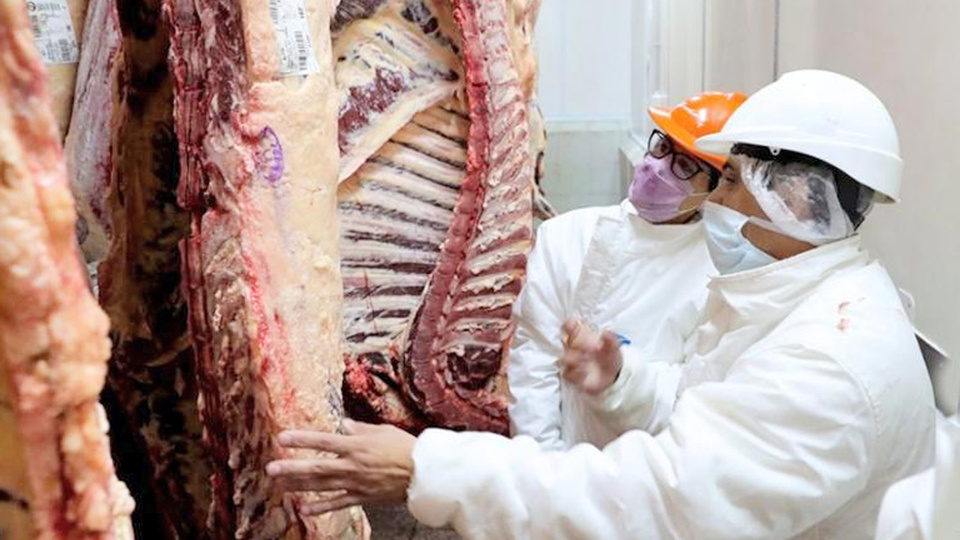La carne está en consumos históricamente bajos y el dólar planchado perjudica las ventas externas, por lo cual el sector está reduciendo personal. El caso Sancor evidencia por qué el modelo Milei derrumba los negocios de volumen.

www-pagina12-com-ar.translate.goog
The usual Google Translate deal, banner is in Castellano and story will initially appear in that tongue, but wait a few seconds and it will change to English.
Meat consumption is at historically low levels and the low dollar is hurting foreign sales, which is why the sector is cutting staff. The Sancor case shows why the Milei model is destroying volume businesses.
Javier Milei's idea of a primary economy, focused on purely export-oriented activities, began to
bury the volume businesses linked to mass consumption . As the official income policy tends to wage negotiations below a stable but expensive food inflation, in addition to price increases for services that break the pocket, sales will have much more moderate growth in the following years. That is, they will go from moving at a significant speed to a rather low cruising speed. This phenomenon, which is first seen in the lower household spending on essential goods, has already begun to make the companies that produce basic food baskets and fresh products bleed.
This week, two specific events occurred that show the crisis that food producers are going to go through. The best known, the 350 layoffs at the Sancor dairy. The other, a looming crisis at national meat packing plants, which due to the drop in sales and the low dollar (which affects exports), have already started laying off workers. According to
Página I12 , this is a process of laying off contracted and temporary workers. In addition, most national meat packing plants have also reduced their slaughter rate given that there is no consumption.
Since the government does not look at these types of conflicts linked to the market performance in labor-intensive segments, the winners in this crisis were the Brazilian meatpackers. With more financial backing to resist, companies like Marfrig and JBS, the former Swift, are taking a good part of the slice of a market with a majority of national companies. This crisis has already caused officials in the meat sector to ask the government for a solution. Requests in vain.


